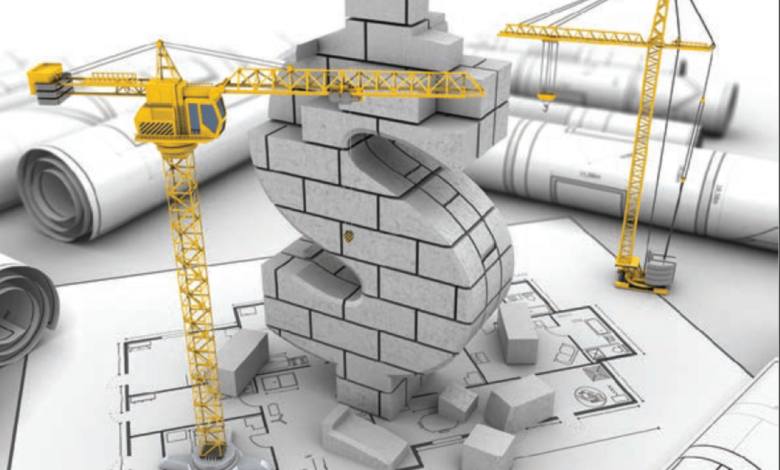What is a Construction Loan: Financing Your Dream Home Build

If you’re planning to build your dream home from the ground up, you’re in for an exciting journey. However, financing a new construction project can be a daunting task. This is where construction loans come into play. What is a construction loan, demystify the process, and provide you with essential insights to help you embark on your home-building adventure with confidence.
Understanding What is a construction loan
1.1 What Is a Construction Loan?
A construction loan is a specialized financial product designed to provide funding for the construction of a new home or significant renovations to an existing property. Unlike traditional mortgages, which provide a lump sum at the time of purchase, construction loans disburse funds in stages throughout the building process.
1.2 How Do Construction Loans Differ from Traditional Mortgages?
While both serve the purpose of financing a home, construction loans differ significantly from traditional mortgages. Traditional mortgages are typically used for buying existing homes, whereas construction loans are exclusively for building new homes or undertaking extensive remodels. Additionally, construction loans have unique terms and disbursement processes tailored to the construction timeline.
Types of Construction Loans
2.1 Construction-to-Permanent Loans
Construction-to-permanent loans, also known as CTP loans, are a popular choice among homebuilders. These loans cover both the construction phase and the permanent mortgage. Borrowers only need to go through one application process and make one set of closing costs.
2.2 Stand-Alone Construction Loans
Stand-alone construction loans are separate from the permanent mortgage. They require two distinct applications and closing processes. Once the construction is complete, borrowers must secure.
The Application Process
3.1 Preparing for Your Loan Application
Before applying for a construction loan, it’s crucial to have a clear plan for your project. This includes detailed construction plans, a realistic budget, and a timeline.
3.2 The Documentation You’ll Need
Construction loan applications typically require comprehensive documentation, including your financial history, credit score, income verification, and project details.
Qualifying for a Construction Loan
4.1 Credit Score and Credit History
Your credit score and credit history play a significant role in your eligibility for a construction loan. Lenders prefer borrowers with good credit as it indicates financial responsibility.
4.2 Debt-to-Income Ratio
When assessing your loan application, lenders also consider your debt-to-income ratio (DTI). A lower DTI is more favorable and indicates that you have sufficient income to cover your debts and the new loan payments.
Interest Rates and Terms
5.1 Fixed vs. Variable Interest Rates
Fixed rates provide stability, while variable rates can fluctuate with market conditions. Choosing the right option depends on your risk tolerance and the current interest rate environment.
5.2 Loan Terms
Construction loan terms can vary but typically range from six months to two years. During this period, you’ll focus on building your home. After completion, the loan transitions into a traditional mortgage.
The Construction Phase
6.1 The Role of the Builder
Collaboration with a reputable builder is essential. They will manage the construction process, ensuring it stays on track and within budget.
6.2 Draw Inspections and Disbursements
During construction, the lender conducts draw inspections to verify the progress before releasing funds. This ensures that the loan funds are used appropriately.
Managing Unexpected Costs
7.1 Contingency Funds
Unforeseen issues can arise during construction.
7.2 Change Orders
Changes to the original plan may occur. Be prepared for change orders, which can impact your budget and timeline.
Benefits and Risks of Construction Loans
8.1 Advantages
- You only pay interest on the funds disbursed.
- Customization options for your dream home.
- Potential for increased property value upon completion.
8.2 Potential Pitfalls
- Strict eligibility criteria.
- Complex application process.
- The risk of cost overruns.
Tips for a Successful Construction Loan Experience
9.1 Plan Thoroughly
Thorough planning is the foundation of a successful construction loan experience. Ensure your project details are well-defined.
9.2 Communicate Effectively
Maintain open communication with your builder and lender to address any issues promptly and keep the project on track. Read more…
Conclusion
In summary, what is a construction loan are a valuable tool for turning your dream home into a reality. Understanding the intricacies of these loans, from the application process to managing the construction phase, is crucial for a smooth building experience. Navigate the complexities of construction loans and create the home you’ve always envisioned.
FAQs
- Can I use a construction loan for renovations?
- You can use a construction loan for major renovations or additions to an existing property.
- What happens if my project goes over budget?
- If your project exceeds the budget, you’ll need to cover the additional costs. Having a contingency fund is advisable to handle such situations.
- Can I act as my own builder with a construction loan?
- Some lenders allow owner-builder arrangements, but it requires a strong understanding of construction and project management.
- Can I refinance my construction loan into a traditional mortgage?
- Yes, you can refinance your construction loan into a permanent mortgage once the construction is complete.
- What is the typical down payment requirement for a construction loan?
- Down payment requirements vary but often range from 20% to 25% of the project’s total cost.
